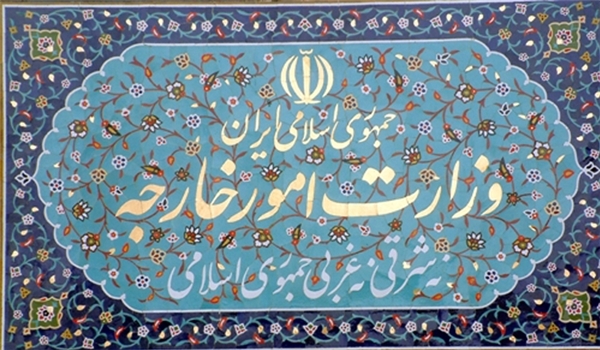
RNA - "The United States administration's decision to impose a ban against Muslims' travel to the US – though for a temporary three-month period – is a flagrant insult to the Muslim world, specially the great Iranian nation; and despite claims about confronting terrorism and protecting security of the American people, it will be recorded in the history as a great gift to extremists and their sponsors," the statement read.
The Iranian foreign ministry further underlined the need for global dialogue and cooperation against radicalism and violence, and noted that the UN General Assembly's unanimous endorsement and ratification of Iran's 'World Against Violence and Extremism' (WAVE) proposal few years ago is yet another indication that Washington's decision for imposing the ban is an "undigested move" that would deepen the gaps among nations and provide a chance for terrorists and extremists to recruit sidelined youth, and would, hence, promote violence and extremism.
In addition, this decision has forgotten to pay heed to "the US security and intelligence agencies' reports and the previous statements of current US officials that underlined the role of the US administration and its regional allies in the creation and spread of such extremist groups as ISIL", it added.
The statement also said the US administration's decision "has targeted the Iranian people and is an obvious insult to each and every member of the Iranian nation, which displays the United States' old allegations about friendship with people despite differences with the Iranian government have all been baseless and indicates the US government and its domestic and foreign influential circles feel collective grudge against all Iranians worldwide".
The ministry also reminded that the Iranian nation has long been standing against terrorism and extremists and has also been a victim of organized terrorism, and said that there has never been any Iranian involved in the terrorist operations conducted by different extremist and terrorist groups.
The foreign ministry also pledged to pursue the decision and its negative impacts on the Iranian nation and take any necessary legal, consular and political action in this regard.
Yet, the statement reiterated that Tehran continues to differentiate between the American people and the White House hostile moves, but it also vowed to "reciprocate" the ban as long as the US administration's restriction against Iranian citizens remains in place.
"The United States' recent decision includes illegal expectations that run counter to logic and international law that would not influence the attitude of the Islamic Republic of Iran's government, specially with regard to the absence of (formal) relations between the two nations."
The ministry also warned Washington to avoid misusing the absence of formal ties between the two states as a pretext to lengthen the period of its "discriminatory actions" and troubles for Iranian citizens, cautioning that any such misuse would be against the norms and laws.
It also reiterated that the Iranian foreign ministry would investigate any violation of the United States' international undertakings based on bilateral and multilateral agreements and "reserve the right to take the necessary reactions".
Travelers with valid visas have reportedly being prevented from boarding flights and turned away at US border control after Donald Trump signed an executive order banning citizens of seven Middle Eastern countries from entering the United States.
The order, which came into force as soon as Trump signed it, requires US border officials to turn away any traveler from Syria, Iraq, Iran, Sudan, Libya, Somalia and Yemen for the next 90 days.
With only a few exceptions for diplomats and dual citizens, the order takes no account of whether travelers have already been issued with visas or have visited the United States before.
A Department of Homeland security spokeswoman said on Saturday that people holding so-called green cards, making them legal permanent US residents, are included in President Trump's executive action temporarily barring people from seven Muslim-majority countries from entering the United States.
"It will bar green card holders," Gillian Christensen, acting Department of Homeland Security spokeswoman, said.
There were immediate reports of travelers who had been issued visas for travel being turned away or told not to board flights because of the ban.
Some airlines have also warned that all passengers whose journeys began in any of the seven countries may be affected, even if their own citizenship is not on the banned list.
US airports were also said to have ordered some passengers who had managed to board flights to return to their point of origin, while the number of people who arrived in the US and were turned back was not immediately available.
847/940